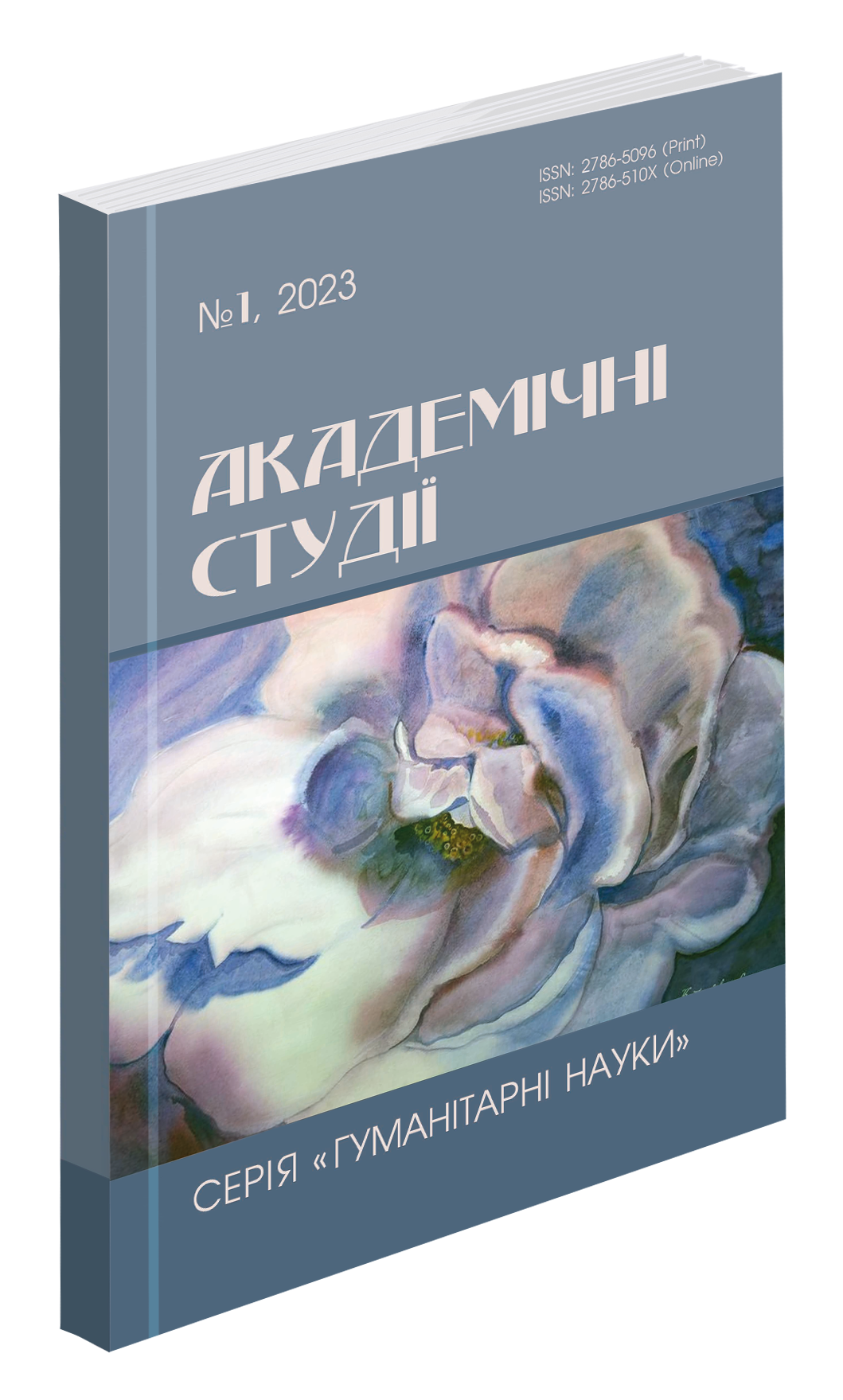Abstract
The problem of speech skills development, communication formation has always been and is one of the key ones in the education system. The increase in requirements for the quality and content of higher education in Ukraine is caused primarily by its integration into the world educational space, the emergence of innovative means of mass communication, the dynamic development of social relations, science, culture, and changes in economic life [Klymova]. The tendency to change knowledge-based education to competence-based one is caused by modern social requirements, as it requires the education of independent, proactive and responsible members of society capable of interaction. The competent approach is not only promising, but also focuses the main efforts of participants in the pedagogical process on creating an environment optimal for the student's personal self-realization. The goal of learning a language is to communicate. Oral communication skills are fundamental to the development of literacy and essential for thinking and learning. It is the glue that puts all the components of a language together [Novapedahohika]. Through talk, students not only communicate information but also explore and come to understand ideas and concepts; identify and solve problems; organize their experience and knowledge; express and clarify their thoughts, feelings, and opinions. Listening and speaking skills are essential for interaction at home, at school, and in the community [College Santa María del Camino]. It acquires special importance in an integral combination with a communicative approach, which brings the educational process closer to real communication conditions. The formation of communicative competence will be more effective when using interdisciplinary connections. It is in the process of studying the Ukrainian and English languages that students have the opportunity to notice many commonalities, to find correspondences with other subjects, especially with literary reading, since language is a means of expressing opinions about objective reality, properties and regularities. The realization of interdisciplinary connections contributes to the scientific organization of the educational process and is a stimulating factor in learning Ukrainian and English languages. [Vasylieva, 2013: 16–22] The practical implementation of forms of speech activity is facilitated by timely and sufficient learning of the main functions of the language. In order for speech to develop harmoniously and fully, it is necessary to systematically teach students four types of speech activities in a relationship (listening, reading, speaking, and writing) [Vovkotrub : 41]. The method of learning any language is the development of oral communication skills and abilities, the deepening of knowledge of oral and written, dialogic and monologic speech, the peculiarities of speech, determined by their communicative tasks and the communication situation. The necessity of this study is due to the conceptual provisions in improvement of higher education`s content and methods, which include linguistic training "students' acquisition of sufficient personal experience, a culture of communication and cooperation in various activities" [Novapedahohika]. In the scientific community, this theory has evolved from a focus solely on personality changes to a more complex understanding/interpretation of this concept, which encompasses a multifaceted social context ("literate society") [Lukianchuk 2019].
References
Бацевич Ф. С. Категорії комунікативної лінгвістики: спроба визначення. Мовознавство. 2003, С. 25–32.
Вовкотруб Р. П. Розвиток усного мовлення учнів першого класу в процесі навчання грамоти : дис. ... канд. пед. наук : 13.00.02 / Одеса. Південноукр. держ. пед. ун-т ім. К. Д. Ушинського. Одеса, 2006. 191 с.
Волошина О. С. Підготовка майбутнього учителя початкових класів до формування іншомовної компетенції учнів. Інноваційна педагогіка. № 3. 2018. С. 96–99.
Демидчик Г. C. Розвиток комунікативно-мовленнєвих умінь молодших школярів засобами службових частин мови : автореф. дис... к. пед. наук : 13.00.02. Київ, 2001. 18 с.
Доклінічні дослідження ветеринарних лікарських засобів / за ред. І. Я. Коцюмбаса. Львів : Тріада плюс, 2006. 360 с.
Дружинець М. Л. Українське усне мовлення: психо- та соціофонетичний аспекти : монографія. Одеса : Одес. нац. ун-т ім. І. І. Мечникова, 2019. 580 с.
Жайворонок В. В. Етнолінгвістика в колі суміжних наук. Мовознавство. 2004, С. 23–35.
Климова К. Я. Теорія і практика формування мовнокомунікативної професійної компетенції студентів нефілологічних спеціальностей педагогічних університетів : монографія. Житомир : РУТА, 2010. 562 с.
Колодич О. Б. Сучасні підходи до вивчення мовленнєвої діяльності. Педагогіка і психологія. 2004, С. 55–60.
Контроль та оцінювання навчальних досягнень учнів початкової школи. Методичні рекомендації. Київ : Поч. школа, 2002. С. 15.
Лук’янчук М. В. Підготовка майбутніх учителів до формування творчих здібностей молодших школярів у процесі навчання грамоти : дис. … канд. пед. наук : 13.00.04. Київ, 2019. 298 с.
Методика викладання рідної мови в середніх навчальних закладах : підручник для студентів-філологів / за ред. М. І. Пентилюк. Київ : Ленвіт, 2000. 264 c.
Омельчук С. Формування мовленнєво-комунікативних умінь на синтаксичній основі. Дивослово. 2004, С. 8–11.
Пономарьова К. І. Формування комунікативної компетентності молодших школярів у процесі навчання української мови : методичний посібник. Київ : КОНВІ ПРІНТ, 2020. 88 с.
Практикум з методики навчання української мови / Караман С. О. та ін. ; за редакцією М. І. Пентилюк. Київ, 2003. 302 с.
Словник-довідник з української лінгводидактики : навчальний посібник / за ред. М. Пентилюк. Київ : Ленвіт, 2003. 149 с.

